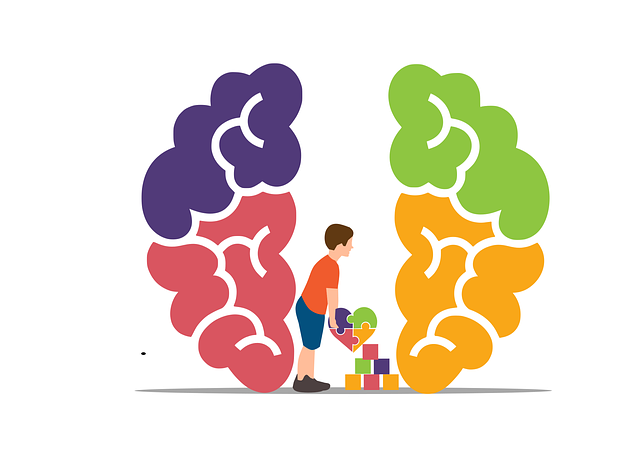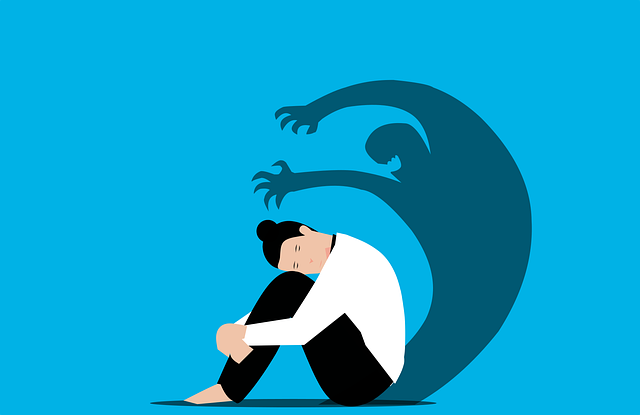Littleton Bariatric Evaluations Therapy (LBET) emphasizes the Resilience, Flexibility, Motivation (RFM) model for effective weight loss journeys. Through CBT, mindfulness exercises, and self-awareness techniques, LBET helps patients build a positive mindset, adapt to setbacks, and maintain commitment to healthier living. Targeting diet, exercise, and mindset, their strategies integrate balanced nutrition, physical activity, and emotional intelligence development. RFM exercises, when incorporated into daily routines, empower individuals to overcome challenges and achieve long-term well-being, making LBET a vital component for successful bariatric evaluations and therapy.
In the realm of healthcare, particularly within Littleton bariatric evaluations, Understanding RFM—a framework focusing on resilience, diet, exercise, and mindset—is pivotal. This holistic approach not only enhances therapy for mental resilience building but also drives significant results in weight management. By targeting these key areas, individuals can overcome barriers and achieve lasting transformation. This article explores practical exercises and long-term benefits of RFM, integrating therapy into daily life to improve overall well-being, especially during bariatric evaluations in Littleton.
- Understanding RFM: A Framework for Resilience in Littleton Bariatric Evaluations
- The Role of Therapy in Building Mental Resilience
- Targeting Key Areas: Diet, Exercise, and Mindset Shifts for Better Results
- Practical Exercises to Strengthen Resilience in Daily Life
- Long-Term Benefits: How RFM Can Transform Lives and Overcome Barriers
Understanding RFM: A Framework for Resilience in Littleton Bariatric Evaluations

Resilience is a vital component of overall well-being, especially for individuals undergoing weight loss journeys. In the context of Littleton Bariatric Evaluations Therapy, Understanding RFM (Resilience, Flexibility, and Motivation) provides a powerful framework. This approach recognizes that building resilience is essential to navigate the challenges associated with significant lifestyle changes, such as diet and exercise modifications. By focusing on these key aspects, therapists can empower patients to foster a positive mindset, adapt to setbacks, and maintain their commitment to a healthier life.
The RFM model offers practical empathy-building strategies to enhance therapy sessions. It encourages individuals to develop flexibility in their thinking and actions, allowing them to cope with stress and anxiety related to weight loss. Moreover, it emphasizes the importance of motivation as a driving force behind behavior change, ensuring that patients have the tools to manage their mental health while pursuing their fitness goals.
The Role of Therapy in Building Mental Resilience

Therapy plays a pivotal role in equipping individuals with the tools necessary to build and strengthen their mental resilience. It provides a safe and supportive environment where individuals can explore their thoughts, emotions, and behaviors without judgment. Through various therapeutic techniques, such as cognitive-behavioral therapy (CBT) and mindfulness practices, clients develop emotional intelligence and self-awareness exercises that are essential for navigating life’s challenges.
In the context of Littleton Bariatric Evaluations Therapy, professionals help individuals manage stress, anxiety, and potential burnout prevention associated with significant lifestyle changes. By fostering resilience, these therapies empower people to cope effectively with the physical and emotional demands of weight loss journeys, promoting overall well-being and long-term success in their transformative processes.
Targeting Key Areas: Diet, Exercise, and Mindset Shifts for Better Results

Targeting key areas is essential for achieving optimal results in resilience building exercises, especially when considering long-term mental wellness and depression prevention. Diet plays a pivotal role; nutrition impacts mood and energy levels significantly. Incorporating balanced meals rich in essential nutrients can enhance one’s ability to cope with stress and improve overall mental health, which is a critical aspect of Littleton Bariatric Evaluations Therapy.
Exercise is another vital component. Regular physical activity not only promotes good physical health but also boosts serotonin levels, reducing symptoms of depression. Developing a consistent self-care routine that includes exercise, such as walking, yoga, or even dancing, can be powerful tools for cultivating mental resilience. Additionally, mindset shifts are crucial; challenging negative thoughts and adopting a growth mindset can significantly impact one’s ability to navigate life’s challenges effectively.
Practical Exercises to Strengthen Resilience in Daily Life

Resilience is a skill that can be cultivated through various practical exercises integrated into daily routines. One effective approach is to engage in regular Self-Awareness Exercises, such as journaling and mindfulness practices. By regularly reflecting on thoughts, emotions, and experiences, individuals can gain valuable insights into their responses to challenges, fostering self-understanding and emotional regulation. This process enables people to recognize triggers, develop coping mechanisms, and ultimately enhance their ability to navigate life’s ups and downs with greater ease.
Additionally, Social Skills Training and Positive Thinking strategies play a pivotal role in building resilience. Building strong social connections provides a support system during difficult times, while fostering positive thinking helps individuals reframe setbacks as opportunities for growth. Incorporating these strategies into daily life can transform challenges into manageable obstacles, promoting a more optimistic outlook and increased mental fortitude. For tailored guidance, seeking professional assistance from therapists specializing in Littleton Bariatric Evaluations Therapy can be immensely beneficial.
Long-Term Benefits: How RFM Can Transform Lives and Overcome Barriers

Resilience is a powerful tool that can transform lives and empower individuals to overcome significant barriers. Through regular practice, RFM (Resilience, Flexibility, and Mindfulness) exercises become an integral part of one’s routine, fostering long-term benefits that extend far beyond initial implementation. By engaging in these activities, individuals can develop a deeper sense of inner strength and resilience, enabling them to navigate life’s challenges with greater ease.
In the context of health and wellness, particularly for those considering bariatric evaluations and therapy like those offered at Littleton Bariatric Evaluations Therapy, RFM exercises play a crucial role in supporting overall well-being. Public Awareness Campaigns Development and Community Outreach Program Implementation initiatives can further enhance these benefits by increasing access to resources and education. This holistic approach not only aids in physical transformation but also equips individuals with the mental fortitude to maintain healthier lifestyles, leading to lasting positive outcomes.
Littleton bariatric evaluations, grounded in the Resilient Factors Model (RFM), offer a transformative approach to therapy. By integrating diet, exercise, and mindset shifts, this framework empowers individuals to overcome challenges and achieve long-term success. Through practical resilience-building exercises, people can strengthen their mental fortitude, leading to improved well-being and sustained lifestyle changes. Incorporating RFM into bariatric evaluations provides a comprehensive strategy for effective therapy in Littleton and beyond, ensuring better outcomes and enhanced quality of life.











